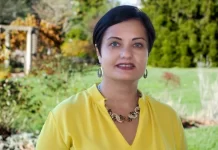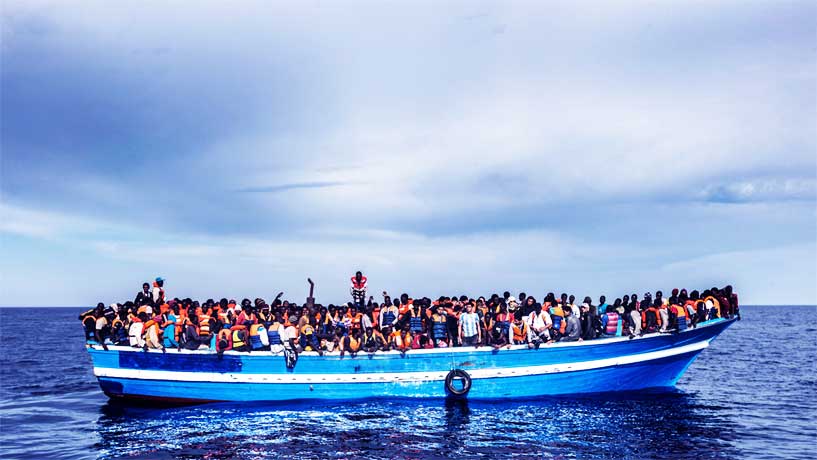 by Hriday Sarma
by Hriday Sarma
One of the enduring problems with certain societies in the world – and this is certainly true of a lot of places in the Middle East – is that the capacity for self-governance and self-organizing just isn’t there. It has to do with history.- Patrick Jake O’Rourke (Senior Research Fellow at the Cato Institute, U.S.).
Yes, O’Rourke is partially correct; but in a way partially incorrect too, if we are to deconstruct modern Western discourse and objectively study the historical development of the region. This is in-fact the same region that had most predominant power epicenters and celebrated civilizations, which gifted mankind with fundamentals of knowledge in an array of disciplines, in the known past.
The Islamic Golden Age- which lasted from 8th century C.E. to 13th century C.E. – witnessed the Islamic Renaissance that marked a zenith of cultural, scientific, religious, and commercial prosperity across the region. Many reputed nonconformist academics and technical experts assertively argue that the Islamic Golden Age did not end in the 13th century, rather it continued almost until the end of the16th century C.E
Unfortunately, at present, almost the entire Middle East seems to be in a state of abyss or mayhem. The Middle East as we know is obviously not a homogenous region in any reckonable term. Yet we commonly make the mistake of conceptualizing and analyzing the region as a singular entity. The term ‘Middle East’ was first coined by Alfred Mahan- known as the most important U.S. military strategist and historian of the ninetieth century- in 1902. Mahan referred to the Middle East as the Persian Gulf, which he insinuated Great Britain should assume security responsibility in order to keep Russia in check and keep secure the route to India.
See Also: A Woman’s Work: Women in the Middle East Choose Untraditional Roles
However, after the First World War when Britain and France gained control over Transjordan, Palestine, Iraq, Syria, and Lebanon, the meaning of the term was expanded to include these territories as well. Now the term was no more solely linked to the security of the region, and in-fact defined the area in general. Starting from then until the states in the region got independence, foreign powers arbitrarily imposed sacrosanct inter-state borders across the region – where people had previously moved about without any restrictions and lived in symbiosis. A big question that was then not introspected and still lays undressed is: whether the Western defined concept of Westphalia based sovereign states system is rightly applicable for the Middle East?
Even when the new-born states in the region were not able to stand on their own feet they were subjected to severe jolts from extra-regional actors, i.e. both states and non-states (institutions). The latter endeavored to evince maximum self-interests while engaging with the former by selectively engaging with chosen insider actors (lackeys) and in self-desirous ways and terms of engagements. They have adhered to this strategy over the years until now, but have of late realized that a mutually complementary relationship is in-fact yielding on their part rather than attempting to further sustain absolute gains. This realization has come about for the Middle East has considerably accumulated ‘power’ over time and is now becoming more restive vis-à-vis the era ensuing inglorious exit of the colonial powers from the region. Presently state and non-state actors across the region are openly challenging Western influences of different kinds over the region.
“Life in the Middle East is quite different from other places”- Zaha Hadid (a globally renowned female architect who hails from Baghdad, Iraq).
Yes, it is indeed so for the numerous gory conflicts of all possible types (sectarian, religious, secessionist, etc.) that have been unceasingly or intermittently happening across the region. From the time all the hereby-located countries regained independence, there has been a rat race between different warring factions inside most states as well as at a regional level in order to secure political and administrative powers in their respective hands. For instance, in Israel the Jewish community has succeeded in gaining an upper hand in all administrative matters of the state; howsoever the Palestinian community has not succumbed to the Jewish preponderance.
The Palestinian Liberation Organization, which presently comprises of ten Palestinian groups, has been globally recognized as a legitimate entity that is seeking Palestinian statehood for its people. Moreover, there exists HAMAS, branded as a terrorist organization by a handful of mostly Western countries- that is presently ruling the Gaza Strip in Israel after winning 2006 Palestinian parliamentary elections with a majority. Also, the Kurdish community – the largest ethnic group without a state – that inhabits in the adjacent parts of Iran, Iraq, Syria, and Turkey are waging conflicts against these states for greater autonomy as well as a loosely tied campaign for a unified Kurdistan state. A list of such conflicts is an extensive one!
Interestingly, a commonality in the approach of state and non-state actors of the Middle East, which are either themselves a belligerent party or have stakes/ interests in any prevalent conflict, is that they give excessively high priority to their individual conflicts of concern while defining their national policies in all regards. This essentially means that while pursuing their general course of actions, including development-related activities; they keep in consideration of the high-conceived value of the conflicts that directly or indirectly concern them.
Hence, in the process, each of these actors has been intentionally or unintentionally building a local milieu surrounding themselves and their subjects that is filled with the necessary wherewithal to address the concerning conflicts. On a similar line, extra-systemic state and institutional actors are equally contributing to building a mega-complex of accumulated self-interested security in the Middle East for they tend to prioritize particular conflicts that are of concern for them while engaging with the region. The overall outcome of this security-centric perspective of all actors is that at the moment there is no realistic development happening in the once-great Middle East region.
Is encouraging democracy among the states in the Middle East, which is presently going on at the behest of the West, a genuinely good way to address the prevalent and future conflicts of the region? Recep Tayyip Erdoğan, current President of Turkey, once frankly said, “I do not subscribe to the view that Islamic culture and democracy cannot be reconciled. However, democracy cannot be defined as the existence of parliaments and elections alone.”
Further, it is for the readers to contemplate whether we should let the Middle East decide what is best for the region or we may continue to do what we are best at – poke our nose into its internal affairs.










